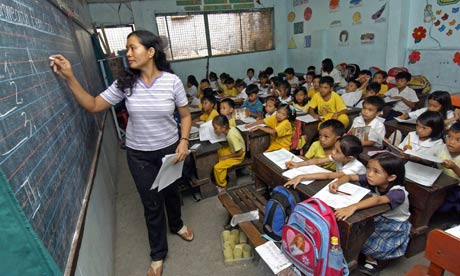Shortage report shows gap widening
 There may never be enough teachers to give every student that best education they can get, but new statistics show many areas are so severely lacking that learning has all but dried up.
There may never be enough teachers to give every student that best education they can get, but new statistics show many areas are so severely lacking that learning has all but dried up.
The latest figures from UNESCO, the United Nations’ education arm, show that over a million teachers are needed to achieve universal primary education by 2015.
The UNESCO Institute for Statistics says the shortage continues throughout year levels. At the lower secondary level, which is compulsory in a growing number of countries - 3.5 million new posts will be needed by 2015, and 5.1 million by 2030.
While the shortage of primary teachers is a concern in all regions of the world, the situation in sub-Saharan Africa is truly critical.
One third of countries in the region are suffering from teacher shortages. The need to recruit more primary teachers will only intensify as the region’s school-age population grows.
If current hiring and training practices go unchanged, many countries will face an even greater shortage of teachers by 2030 than they do today. By that point, 2.1 million new teaching positions will have to be created in sub-Saharan Africa while 2.6 million teachers leaving the profession will need to be replaced.
Shortages look set to continue in the Arab States, when the school-age population rises to 9.5 million in 2030. Several countries have increased recruitment over the last decade to meet the challenge, with statistics showing the region needs to create an additional 500,000 posts by 2030 and replace 1.4 million teachers leaving the profession – if it is to achieve and maintain universal primary education.
UNESCO says around 3.5 million new lower secondary education teaching posts must be created by 2015, and 5.1 million will be required by 2030. Secondary education demands a greater number of teachers than the primary level because it requires more subject-specific teachers and longer instruction time.
The UNESCO UIS has put up an interactive graph of the global teacher shortage, available here.
They have also made the full details of the report on the global pedagogical dearth available in PDF form.







 Print
Print